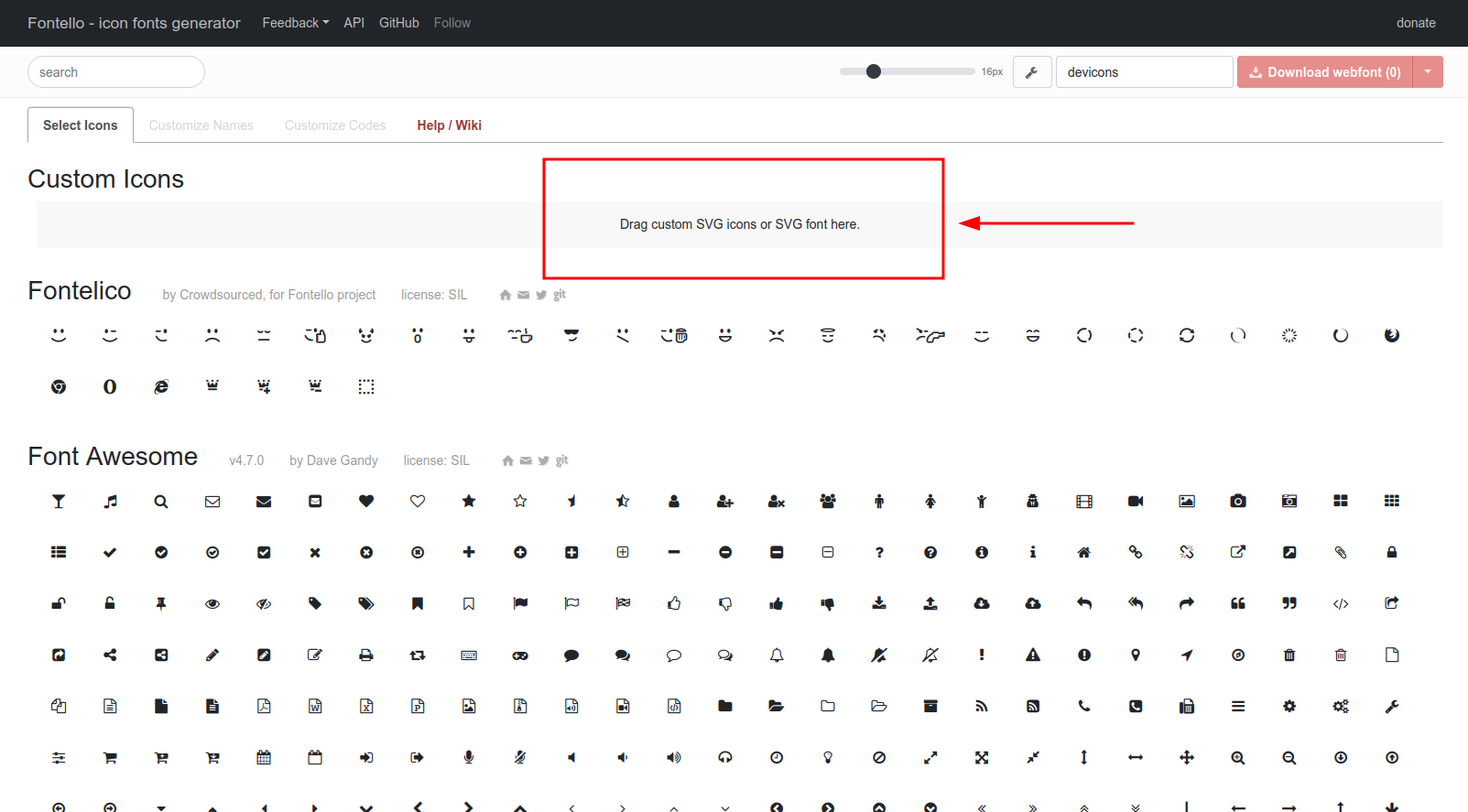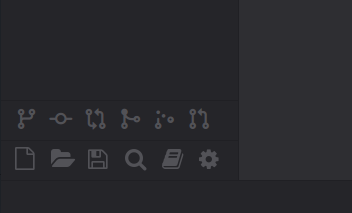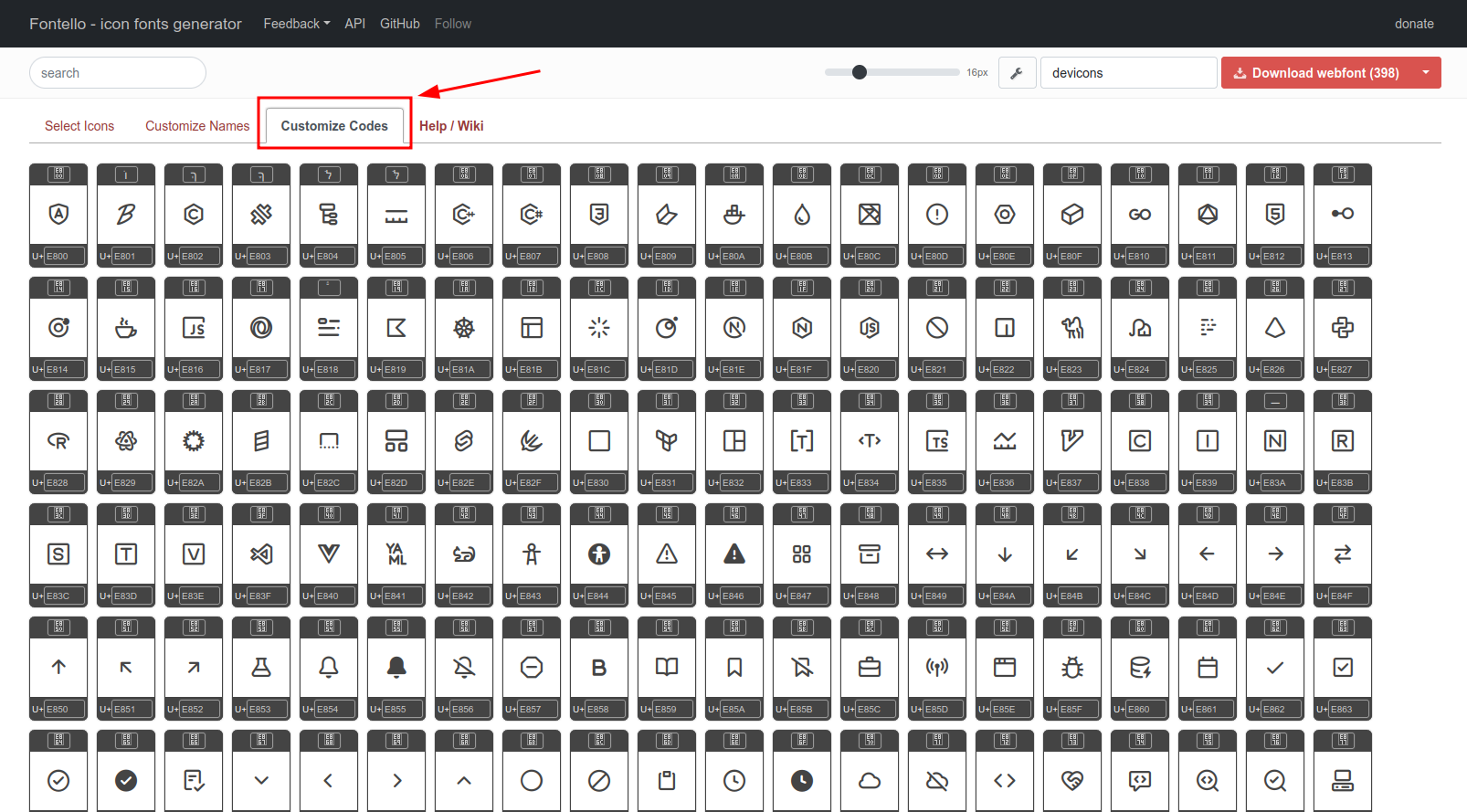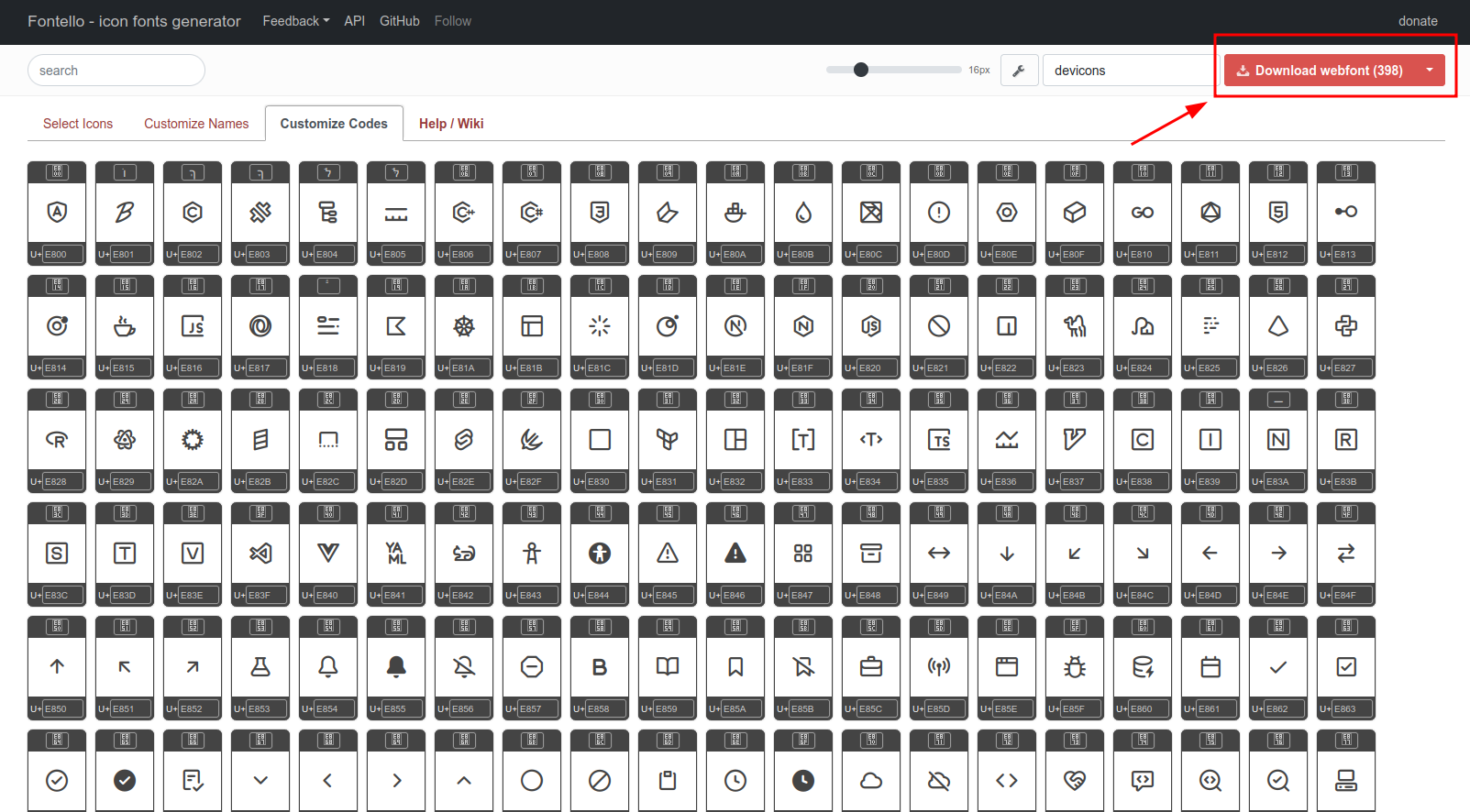ToolbarView
What is ToolbarView?
ToolbarView provides a generic toolbar above the existing one in Lite XL. A toolbar is a GUI component that allows mouse-driven activation of commands by pressing buttons.
What does the plugin do?
The plugin allows users to create their own toolbars with custom icons and functionality. For example, the toolbar can be configured for Git operations, which is shown below.
Create a plugin
Before reading further, it may be useful to refresh Lua basics by reading the Lua manual.
Now let's start writing the plugin. Create a directory called toolbar in USERDIR/plugins.
USERDIR usually corresponds to ~/.config/lite-xl on Linux and macOS, and %USERPROFILE/.config/lite-xl on Windows.
Inside the directory, create a file called init.lua. Add -- mod-version:3 to the first line of the file to indicate the versions of Lite XL supported by the plugin.
Get plugin directory
We add some code that retrieves information like folder paths of plugins and fonts.
local function get_plugin_directory()
local paths = {
USERDIR .. PATHSEP .. "plugins" .. PATHSEP .. "toolbar",
DATADIR .. PATHSEP .. "plugins" .. PATHSEP .. "toolbar"
}
for i, v in ipairs(paths) do
-- Check if folder exists
if system.get_file_info(v) then
return v
end
end
return nil
end
The get_plugin_directory() function is needed as we may load icon fonts from the plugin directory itself. Lua does not provide the path of the current file (e.g. __filename and __dirname in Node.js), so we have to improvise and hard-code the path. For this reason, the code will not work if the plugin is saved as USERDIR/plugins/toolbar.lua, even if Lite XL could load the plugin.
Create the view
Next we create an instance of our custom toolbar view, make it inherit the ToolbarView super-constructor, specify the desired icon font and assign the icons to their respective commands.
local Toolbar = ToolbarView:extend()
function Toolbar:new()
Toolbar.super.new(self)
self.toolbar_font = renderer.font.load(get_plugin_directory() .. PATHSEP .. "toolbar.ttf", style.icon_big_font:get_size())
self.toolbar_commands = {
{symbol = "A", command = "core:open-log"},
{symbol = "B", command = "core:new-doc"},
{symbol = "C", command = ""},
{symbol = "D", command = ""},
{symbol = "E", command = ""},
{symbol = "F", command = ""},
}
end
You can add existing commands inside the empty fields or write your own.
Add the view
Now we insert the toolbar into Lite XL and make it extendable by other plugins with
local toolbar = require "plugins.toolbar".
toolbar.example_toolbar_view = Toolbar()
-- TreeView is split along the up direction and the ToolbarView is added at the bottom
-- {y = true} indicates that the ToolbarView size should be fixed along the y axis
toolbar.example_toolbar_node = TreeView.node.b:split("up", toolbar.example_toolbar_view, {y = true})
return toolbar
Create a custom icon font
The last step is preparing a simple icon font with Fontello; to do this, you must do the following:
- Go to Fontello
-
Drag and drop the desired icons in the light-gray rectangle in the middle of the page:

-
Select the icons you want to include in the font
-
Press on the
Customize Codestab on the top-left of the page and copy each icon glyph and paste it into the corresponding place in thetoolbar_commandstable (the example contains letters, so replace those letters with the corresponding glyphs) -
Specify the icon font name in the white text input field in the top right
-
Press the rectangular red button with
Download webfontin the top right corner of the page to create and download the icon font:
The code
The following is an example of a very simple toolbar with a custom icon font:
-- mod-version:3 -- lite-xl 2.1
local config = require "core.config"
local common = require "core.common"
local style = require "core.style"
local TreeView = require "plugins.treeview"
local ToolbarView = require "plugins.toolbarview"
local function get_plugin_directory()
local paths = {
USERDIR .. PATHSEP .. "plugins" .. PATHSEP .. "toolbar",
DATADIR .. PATHSEP .. "plugins" .. PATHSEP .. "toolbar"
}
for i, v in ipairs(paths) do
if system.get_file_info(v) then
return v
end
end
return nil
end
local Toolbar = ToolbarView:extend()
function Toolbar:new()
Toolbar.super.new(self)
self.toolbar_font = renderer.font.load(get_plugin_directory() .. PATHSEP .. "toolbar.ttf", style.icon_big_font:get_size())
self.toolbar_commands = {
{symbol = "A", command = "core:open-log"},
{symbol = "B", command = "core:new-doc"},
{symbol = "C", command = ""},
{symbol = "D", command = ""},
{symbol = "E", command = ""},
{symbol = "F", command = ""},
}
end
toolbar.example_toolbar_view = Toolbar()
toolbar.example_toolbar_node = TreeView.node.b:split("up", toolbar.example_toolbar_view, {y = true})
return toolbar


